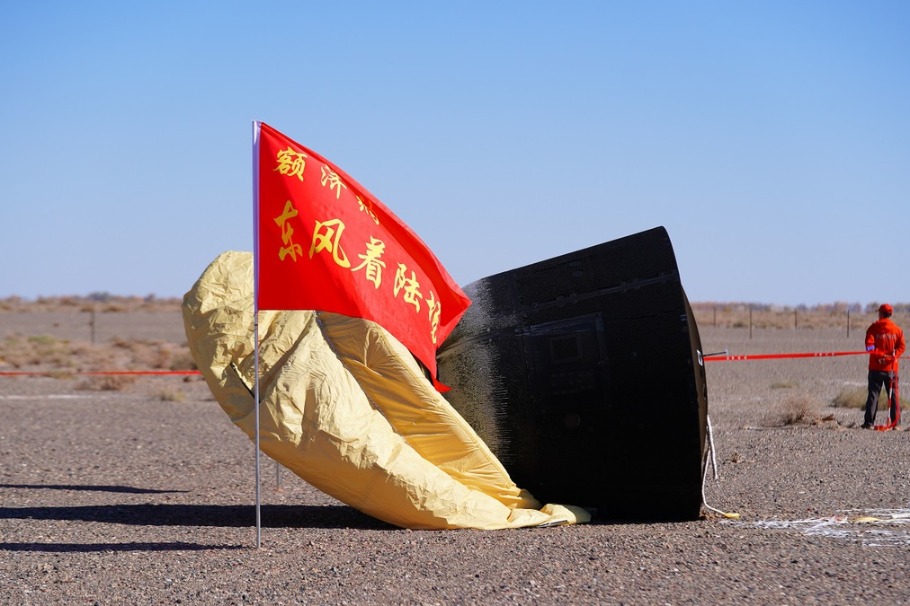Bristol Myers Squibb innovating in Chinese pharmaceutical market

With China's outlines of the 14th Five-Year Plan (2021-25) for National Economic and Social Development and the Long-Range Objectives Through the Year 2035 emphasizing the deployment of more resources to advance opening-up and prioritize people's health, the country has become a more promising market for multinational pharmaceutical businesses.
With an improved regulatory environment, emerging local talents and adequate capital resources in this market, many multinational pharmaceutical enterprises have adapted strategies in recent years to seize opportunities in China. It has become the second-largest pharmaceutical market in the world, industry leaders said.
This rapid growth came from government efforts in improving medical innovation and access, health system reform and regulatory processes under the Healthy China 2030 blueprint. Issued in 2016, the blueprint highlights the importance of major disease prevention and treatment. It sets a goal to raise the overall five-year cancer survival rate by 15 percent and achieve no less than 46.6 percent by 2030.
Bristol Myers Squibb, a global biopharmaceutical group, has been operating in China for 40 years and is driving innovation and investment through the company's China 2030 Strategy.
"Our China 2030 Strategy is in line with the government's Healthy China 2030 blueprint," said Christopher Boerner, executive vice-president and chief commercialization officer of Bristol Myers Squibb.
In 2017, China became a full member of the International Council for Harmonisation of Technical Requirements for Pharmaceuticals for Human Use, an organization that standardizes global drug regulations. The country has gradually integrated into the international drug regulatory system.
In 2021, the Center for Drug Evaluation at the National Medical Products Administration published the Guiding Principles for Clinical Research and Development of Antitumor Drugs Oriented by Clinical Value. It encourages the development of better quality cancer treatments by incorporating changing standards of care into clinical trials and implementing a patient-centric R&D concept. The guiding principles are a strong signal to pharmaceutical companies that they should focus on true innovation instead of "me-too "drugs.
These initiatives have helped to accelerate R&D and the commercialization of innovative therapies in China. Multinational pharmaceutical companies like BMS now have more opportunities to tap into this burgeoning market.
As a globally leading biopharmaceutical company, BMS focuses on R&D and the production of innovative medicines for patients with the most challenging diseases. The company is making investments with the aim to become innovation leaders in core therapeutic areas such as oncology, hematology, cardiovascular diseases and immunology. It is expanding its portfolio in China, with up to 30 innovative medicines and indications to be introduced by 2025.
"We have seen fundamental changes in the regulatory environment that favor innovative medicines," said Boerner. "It's a market which continues to modernize and build upon a healthcare infrastructure that supports innovative medicines. The access environment is also improving for these medicines. We think all these things open the door for innovative medicines, which are at the core of our portfolio."
BMS was the first Sino-US pharmaceutical joint venture after China began its reform and opening-up in the late 1970s. Over the past 40 years, the company has built up strong connections and a significant presence in China, and is committed to continuing prioritizing China as a key driver across all its development programs.
As a result of policy developments in China, BMS has been able to expand its portfolio in the market, which in many cases consists of first-in-class medicines designed to offer more treatment options.
A recent typical case is an erythroid maturation agent introduced by BMS, which aims to help the treatment of adults with anemia in beta thalassemia, an inherited blood disorder caused by a genetic defect in hemoglobin. This medicine was approved and launched in the country.
"It is a first-in-class medicine, like a lot of medicines in our portfolio," Boerner noted.
"We are excited about the product's launch in China and we view it as part of the broader 2030 Strategy, which is all about developing innovative medicines and bringing those medicines as quickly as possible to Chinese patients," Boerner said.
BMS has made a commitment to the broader healthcare community in China by supporting the Beijing Health Alliance Charitable Foundation to launch a Standardized Diagnosis and Treatment Program for patients with thalassemia. This will help accelerate and improve the standardization of thalassemia treatments. The company is also collaborating with government and industry partners to increase patient access to medicines.
In recent years, China has accelerated the review and approval process for global innovative medicines to establish a sustainable healthcare ecosystem for its huge population. To speed up drug approvals, the NMPA has given critical and rare disease medicines priority for review.
"We are in the process of working closely with the Chinese government to provide broader patient access by including our innovative medicines in the national reimbursement drug list and collaborating with local governments, payers and industry partners to develop innovative access models, such as local commercial health insurance, which allows us to provide more differentiated patient support services," Boerner noted.
According to Boerner, the latest launched erythroid maturation agent is just one medicine in the group's innovative portfolio. In addition to the company's investment in a number of new medicines and indications in China, BMS has dozens of ongoing clinical studies in other areas of need. The company has grown its immuno-oncology business for new approvals in key disease areas like gastric cancer, which is a critical area of unmet need in many parts of Asia.
China is experiencing an unprecedented era in the innovation-oriented pharmaceutical industry and talent plays a foundational role in this industry.
"Talent is one of the main assets for BMS and our talent strategy is at the core of our China 2030 Strategy. We believe that our mission for the patients and communities we serve would not be possible without the passion, dedication and invaluable contributions of our people," Boerner added. The company said it aims to more than double their combined R&D and commercial headcount in China by 2025.
A key part of BMS' talent strategy is attracting, developing and retaining a diverse and talented workforce. The company has launched a series of talent development and care programs to improve employees' experiences and career development.
The talent strategy of BMS has been recognized throughout the industry. The company was awarded Top Employer China 2022 in January and Best Workplaces in Greater China 2021 in December.
Chen Siyuan, president and general manager of Bristol Myers Squibb for China, said BMS has been growing its oncology sales force significantly in the country and scaling up a hematology team to ensure a successful commercial launch of its erythroid maturation agent, as well as to maximize patient access to the medicine. In the meantime, it is assembling a team for immunology to anticipate new asset launches in this area.
"This is a very competitive market in China today. But I think when you have the benefit of having a great portfolio of innovative medicines and great leadership to help build a culture where people want to work, and when those things get recognized as they have been recently in China, then we're able to compete effectively in the market and achieve our vision to transform patients' lives through science," said Boerner.
































